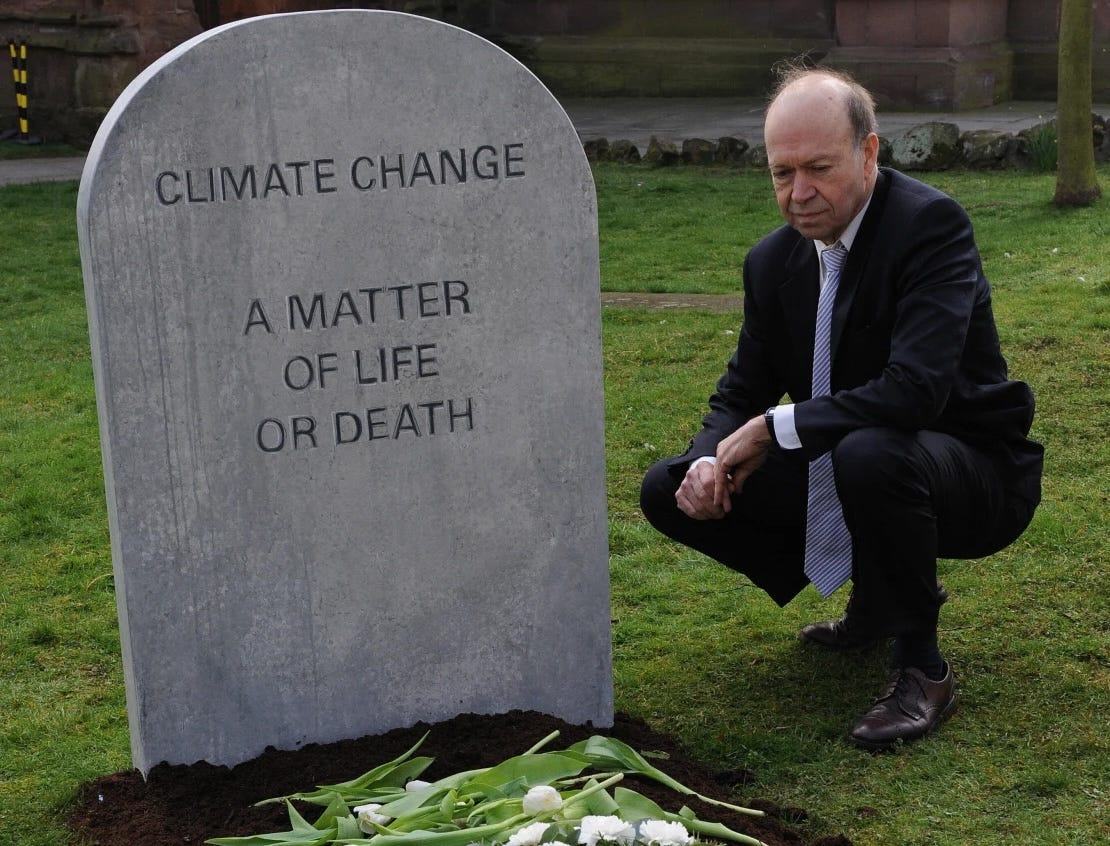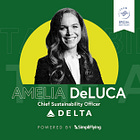#Sustainability20: Indian Lessor Agrees to Buy LYTE's 40-Seat VTOLs & More
Weekly Roundup - 03/11/23
Each Friday, we publish a round-up of the 20 most important stories on sustainable aviation. You can see previous editions of #Sustainability20 here.
Industry Updates
DBRS Morningstar's two-part commentary reveals aviation's push for decarbonisation, facing the challenge of increasing demand for air travel. Technological innovation in propulsion and significant investment in infrastructure for sustainable aviation fuels (SAF) are crucial. Despite high costs, SAF remains the leading short-term solution for emission reduction, especially for long-haul flights.
The Dubai Airshow 2023, focusing on sustainability, will host over 300 speakers discussing aerospace, space, and defence with an emphasis on sustainable aviation fuel and regulatory innovation.
Wizz Air's Chief Corporate and ESG Officer, Yvonne Moynihan, discusses the airline's pursuit of sustainability through efficient operations, fleet renewal, and strategic investments in sustainable aviation fuels and new technologies.
Amidst flight shaming, aviation, though just 3.5% of human-induced global warming, could hit 22% of emissions by 2050. China has joined the US and EU in green aviation plans, focusing on new technology over net-zero targets.
How Is Rolls-Royce Working With Government Bodies In The UN's Race To Zero Campaign? - Simple Flying
The aviation sector is targeting carbon neutrality by 2050, addressing rising fleet and traffic emissions. With Rolls-Royce's commitment to the UN's Race to Zero, the industry seeks policy support for carbon-neutral tech and SAF use, moving through phases of emissions reduction to futuristic energy sources.
CLIMATE WATCH: The planet is heating up faster than predicted, says scientist who sounded climate alarm in the 1980s - CNN
James Hansen's latest study warns the Earth is heating faster than expected, with a possible 1.5°C rise this decade. Urgent action and novel strategies like taxing carbon and solar geoengineering are recommended to combat the accelerating climate emergency.
Infrastructure and operational efficiencies
EasyJet has finished retrofitting its fleet with Airbus's DPO and CDA technologies, aiming for annual CO2 savings of up to 88,600 metric tons by 2024 to advance its net-zero roadmap.
Aviation is a challenging sector to decarbonise due to its reliance on nascent, costly technologies. Despite this, Delta Air Lines is committed to net zero by 2050 through efficiency and new tech, led by their sustainability-focused COO, Amelia DeLuca.
Despite high traffic, Austin Airport has maintained carbon neutrality for the third year, through sustainable practices, energy-efficient partnerships, and a robust environmental portfolio, reinforcing its commitment to green operations.
Sustainable Aviation Fuel (SAF)
Study shows SAF cuts ultrafine particle emissions by 30% compared to kerosene. Tests at Copenhagen Airport with SAS and BP confirm local air quality benefits under real conditions.
Major corporations are investing in SAF credits to reduce air travel emissions. Microsoft, Google, and DHL are pioneering the market, encouraging SAF production and potentially impacting corporate travel's carbon footprint.
Southwest Airlines has secured 680 million gallons of SAF from USA BioEnergy, supporting its goal to replace 10% of jet fuel by 2030 for carbon neutrality by 2050.
Cebu Pacific is collaborating with Neste to potentially purchase SAF, aiming to significantly cut carbon emissions and align with the aviation industry's 2050 net-zero goal.
Indonesia launched its first commercial flight using palm oil-blended jet fuel to reduce imports and greenhouse emissions, signalling potential broader use despite deforestation concerns.
Farnborough Airport sold its millionth litre of SAF, aiming to be SAF-only by the decade's end, reinforcing its commitment to carbon neutrality and sustainability.
Satorp, an Aramco and TotalEnergies joint venture, has certified its conversion of used cooking oil into SAF, supporting TotalEnergies' 2030 climate goals.
New technology: Electric and Hydrogen
Vman Aviation Services has preordered 10 LYTE Aviation LA-44 SkyBus eVTOLs, aiming to pioneer mass transit in India's booming population and dense cities with innovative air transportation solutions.
BETA Technologies' all-electric aircraft flew 135 miles across Georgia, aided by new charging infrastructure. This marks progress towards FAA certification having already completed 26,000 miles of piloted flights.
Airbus is updating its maritime fleet to cut CO2 emissions and introducing three low-emission, wind-assisted ships by 2026 to reduce transatlantic shipping emissions by over 50% by 2030.
Overair has received a pre-order for up to 20 Butterfly eVTOLs from HeliKorea for uses including emergency, logistics, and firefighting, alongside forming key partnerships to integrate AAM in South Korea's infrastructure and law enforcement.
The U.S. Air Force has selected Pipistrel's Velis Electro for its Agility Prime program, marking a milestone for sustainable flight and the adoption of electric aircraft in operational training.







